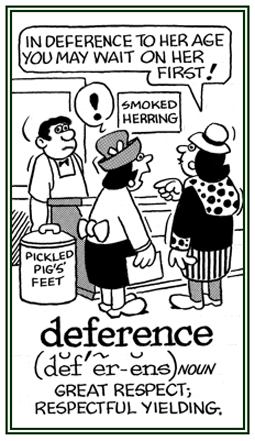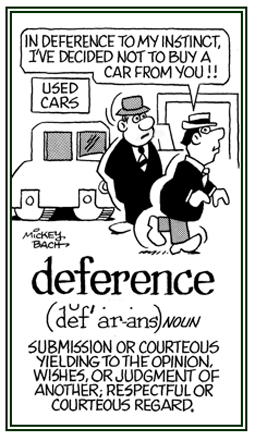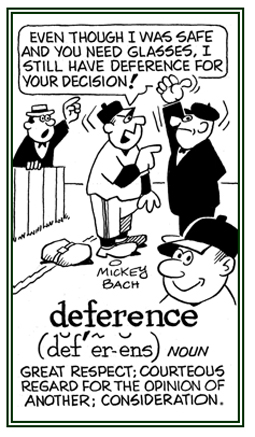de-
(Latin: from, away from, off; down; wholly, entirely, utterly, complete; reverse the action of, undo; the negation or reversal of the notion expressed in the primary or root word)
defenestrate (verb), defenestrates; defenestrated; defenestrating
1. To throw something out of a window: Before toilets were invented and widely used, people in the past defenestrated their human wastes out on the streets in cities and were even defenestrating such excreta on people who were walking by the buildings below.
2. Etymology: The verb form was actually derived from the noun defenestration, and is composed of de-, "from, of" + fenestra "window". Fenestra is used in French fenêtre and in German Fenster.

© ALL rights are reserved.
Go to this Word A Day Revisited Index
2. Etymology: The verb form was actually derived from the noun defenestration, and is composed of de-, "from, of" + fenestra "window". Fenestra is used in French fenêtre and in German Fenster.
Although the following image represents a noun, it also illustrates the meaning of this verb.

Go to this Word A Day Revisited Index
so you can see more of Mickey Bach's cartoons.
defenestrated (adjective), more defenestrated, most defenestrated
1. A reference to something that is thrown out of a window.
2. In computer language, indicating the removal of a Windows's program from a computer.
2. In computer language, indicating the removal of a Windows's program from a computer.
An act of tossing or flinging someone or something out of a window: The defenestration of garbage and human-night soil onto the streets was a common practice in many medieval cities.

© ALL rights are reserved.
Go to this Word A Day Revisited Index

Go to this Word A Day Revisited Index
so you can see more of Mickey Bach's cartoons.
defensible (adjective), more defensible, most defensible
defensibly (adverb), more defensibly, most defensibly
defensive (adjective), more defensive, most defensive
defensively (adverb), more defensively, most defensively
defer (verb), defers; deferred; deferring
1. Putting off (action, consideration, etc.) to a future time: The decision has been deferred by the company's president Mr. Hanson until next week.
2. To postpone the process of someone entering a branch of military service: Malcolm wanted to defer joining the military until after he had finished his high school education.
2. To postpone the process of someone entering a branch of military service: Malcolm wanted to defer joining the military until after he had finished his high school education.
1. Submission or courteous yielding to the opinion, wishes, complaisance, or judgment of another person: Jason noticed that his deference to his supervisor, Mr. Anderson, appeared to please him.
2. Courteous respect; polite respect, especially putting another person's interests first: Clay was taught to show deference to people who were as old as his grandparents.

© ALL rights are reserved.

© ALL rights are reserved.

© ALL rights are reserved.
Go to this Word A Day Revisited Index
2. Courteous respect; polite respect, especially putting another person's interests first: Clay was taught to show deference to people who were as old as his grandparents.



Go to this Word A Day Revisited Index
so you can see more of Mickey Bach's cartoons.
A surgical sterilization procedure performed in males where a segment of the vas deferens is removed: "The vas deferens is a coiled duct that conveys sperm from the epididymis to the ejaculatory duct and the urethra; so, the deferentectomy is an operation on the tube that connects the testes with the urethra."
deferential (adjective), more deferential, most deferential
Showing or expressing polite respect, courtesy, and consideration: Mrs. Johnson's history class listened with deferential attention to another student's report about the lives of Roman gladiators.
The lawyers showed deferential respect by bowing to the judge as they were leaving the courtroom in London.
deferentially (adverb), more deferentially, most deferentially
1. Respectfully and with esteem that is due a superior or an elder: Sarah's grandson spoke deferentially to her and to her friends when they visited her.
2. Affected or ingratiating regard for another's wishes in a servile manner: The fawning, flattering, and deferentially polite manner with which Uriah spoke to the supervisor, Mr. Johnson, tended to irritate her.
2. Affected or ingratiating regard for another's wishes in a servile manner: The fawning, flattering, and deferentially polite manner with which Uriah spoke to the supervisor, Mr. Johnson, tended to irritate her.


